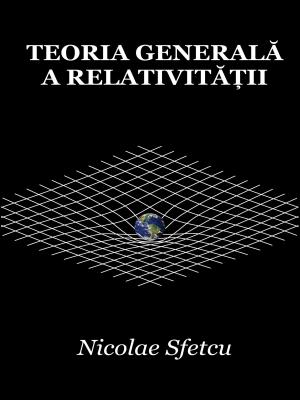Gaming Guide: Gambling in Europe
Nonfiction, Entertainment, Games, Gambling, Business & Finance, Economics| Author: | Nicolae Sfetcu | ISBN: | 9781370690367 |
| Publisher: | Nicolae Sfetcu | Publication: | November 11, 2016 |
| Imprint: | Smashwords Edition | Language: | English |
| Author: | Nicolae Sfetcu |
| ISBN: | 9781370690367 |
| Publisher: | Nicolae Sfetcu |
| Publication: | November 11, 2016 |
| Imprint: | Smashwords Edition |
| Language: | English |
Introduction in gambling: theory, games (including poker), casino, sports betting, strategies. Gambling as a business in Europe and European Union Member States: economics, law, taxes, barriers, problem gambling.
Since the emergence of the internet in the 1990s, an increasing number of gambling services have come available on-line or through other new remote communications technologies. The rapid technological advancements, commercial initiatives, and market penetration of such commerce have made this sector of the gambling services industries extremely dynamic and potentially transformative in the years ahead.
Demand for gambling services in the early 21 century and for the past half-century in the European Union – as well as in most other parts of the world – has been and is expanding rapidly, for a number of reasons. The commercial and government owned gaming industries of the European Union are organized under a wide variety of ownership regimes and market structures. Ownership and market structures are affected by numerous factors, including Member State laws and regulations; restrictions on product types, characteristics, points of sale, availability, and marketing effort; economies of scale; network effects; and impacts of new technologies.
The overall gambling market in Europe is growing, both land-based and online. Lotteries and gambling machines remain the biggest sectors in the overall gambling market. While not all EU Member States have a legal definition of the concepts of “games of chance” and of “gambling”, in most jurisdictions a game of chance is defined as a game that offers an opportunity to compete for prizes, where success depends completely or predominantly on coincidence or an unknown future result and cannot be influenced by the player. At least one of the players loses his or her stake. The first important element characterising a game of chance is that of stake money or monetary value. The second essential characteristic of a game of chance is the element of chance. Success or loss must depend completely or predominantly on coincidence and not on abilities and knowledge. Success is considered to depend in any case on coincidence, if the relevant aspect is the occurrence of an uncertain event.
The last two chapter include several independent adaptations of the corresponding European Commission works, free to use and freely available via the EU website with © European Union, and translation of the European Commission works with © Nico9lae Sfetcu, the author of this book.
Introduction in gambling: theory, games (including poker), casino, sports betting, strategies. Gambling as a business in Europe and European Union Member States: economics, law, taxes, barriers, problem gambling.
Since the emergence of the internet in the 1990s, an increasing number of gambling services have come available on-line or through other new remote communications technologies. The rapid technological advancements, commercial initiatives, and market penetration of such commerce have made this sector of the gambling services industries extremely dynamic and potentially transformative in the years ahead.
Demand for gambling services in the early 21 century and for the past half-century in the European Union – as well as in most other parts of the world – has been and is expanding rapidly, for a number of reasons. The commercial and government owned gaming industries of the European Union are organized under a wide variety of ownership regimes and market structures. Ownership and market structures are affected by numerous factors, including Member State laws and regulations; restrictions on product types, characteristics, points of sale, availability, and marketing effort; economies of scale; network effects; and impacts of new technologies.
The overall gambling market in Europe is growing, both land-based and online. Lotteries and gambling machines remain the biggest sectors in the overall gambling market. While not all EU Member States have a legal definition of the concepts of “games of chance” and of “gambling”, in most jurisdictions a game of chance is defined as a game that offers an opportunity to compete for prizes, where success depends completely or predominantly on coincidence or an unknown future result and cannot be influenced by the player. At least one of the players loses his or her stake. The first important element characterising a game of chance is that of stake money or monetary value. The second essential characteristic of a game of chance is the element of chance. Success or loss must depend completely or predominantly on coincidence and not on abilities and knowledge. Success is considered to depend in any case on coincidence, if the relevant aspect is the occurrence of an uncertain event.
The last two chapter include several independent adaptations of the corresponding European Commission works, free to use and freely available via the EU website with © European Union, and translation of the European Commission works with © Nico9lae Sfetcu, the author of this book.















